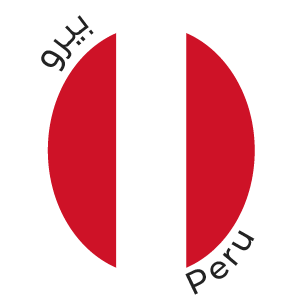Apaylla Lot #04185
أبايالا 04185
These coffees originate from what was once the Inca empire in Peru from the region of Cusco. The coffee plantations are located under the snowy Choqesafra valley of the Inkawasi district. Here the indegenous farmers follow in the footsteps of their ancestors working in harmony with the environment and mother earth. The
coffees are grown under shade covering with close attention paid to the health of the soils and irrigation to help the coffee trees thrive. The quality of the coffees from this region is well known and in 2020 one of their producers from Incahuasi placed 1st in the Cup of Excellence with a washed .These coffees are made up from two Cooperatives Valle Incahuasi and Cooperativa San Fernando .Together the group
encompasses 1000 members who on average handle 1.50 hectares of coffee, with a productivity of 20qq /hectare. This equates to about 20 bags of green coffee per farm each harvest. In each area there is a centralised processing plant where cherry coffee is collected in addition to pulping, fermentation, washing, drying and temporary storage, to later be transferred to the central warehouse, where sampling and physical and sensory evaluation are carried out by the quality analyst. The coffees come from four regions of San Fernando, Pacayamba, Amabamba and Apaylla
and the processing is controlled by the Cooperativa Incahuasi. The majority of the
cherry comes from the San Fernando are who produce about 60 - 70 % of the total volume. The process is carried out with good control of a harvest with selective picking and separation of the cherry at the first step. Coffee is then cleaned and washed before being placed on raised African style dryinig beds. From here the
coffee is laid thinly to start with to get the skin drying phase done where the moisture will reduce fro 55-60% down to 25 - 30%. This stage helps to prevent the spoiling of the coffee and any chance of defects. From here the coffee then takes around 28 days to dry with regular turning on the beds each hour to create consistency and uniformity. Once it has reached 10% moisture the coffee is the stored in the warehoused to rest and be cupped and categorised. The natural process is also good for the environment reducing the need for water that can contaminate local water sources as well as the need fro energy to power mechanical driers. All the drying of these coffees is done using the natural warmth and
heat of the sun. They also had two more producers in the top 10 this year as well. This lot from the Apaylla area was cupped and separated at the mill before then being bagged and milled ready for export in Lima



